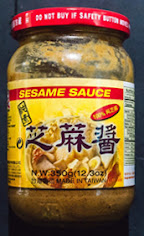Precedential No. 2: TTAB Upholds Refusal to Register ZHIMA Absent an English Translation ("Sesame")
Rule 2.32(a)(9) of the Trademark Rules of Practice requires that any non-English wording in a proposed mark be translated into English. Applicant Advanced New Technologies applied to register the mark ZHIMA for hundreds of goods and services in nine classes, but it refused to comply with Examining Attorney Marc Sparacino's requirement that it submit an English translation of the mark. Advanced advanced the argument that ZHIMA, although a transliteration of the Chinese characters for the word, is a coined term without any meaning. The Board sided with the USPTO. In re Advanced New Technologies Co., Ltd., 2023 USPQ2d 60 (TTAB 2023) [precedential] (Opinion by Judge Marc A. Bergsman).
The original applicant was the Chinese company, Alibaba. The Board noted that "Ali Baba" is the hero of the Arabian Nights story, "Ali Baba and the Forty Thieves." Ali Baba is a poor woodcutter who discovers the secret of a thieves' den, which he entered with the phrase "Open Sesame."
The term “Open Sesame” has come to mean, inter alia, “a marvelous or irresistible means of securing access to what would normally be inaccessible.” Thus, the use of the Chinese word for “Sesame” for the wide variety of goods and services identified in its application creates the commercial impression that Applicant is offering access to what was previously inaccessible (i.e., all of Applicant’s goods and services).
The Board also noted that, in a co-ending application for the Chinese characters (above), Advanced entered a translation of the characters as "SESAME in English."
The Examining Attorney submitted a translation of the Chinese characters (sometimes with the term "ZHIMA") from nine Chinese-English dictionaries, as "sesame" or "sesame seed." Advanced conceded that the dictionary evidence showed that the Chinese characters "transliterate or are pronounced 'zhima,'" but argued that this evidence does not show that the term ZHIMA "is translated to the English word 'sesame' nor that ZHIMA has any meaning at all."
The Examining Attorney countered with numerous news articles referring to "Zhima" as the Chinese term for "sesame," as well as with third-party website evidence discussing ZHIMA or ZHI MA sesame products. The Alibaba.com website advertised a sesame powder as "Zhima Powder."
The Board found that the evidence both established that "ZHIMA is a transliteration of a Chinese word that means 'Sesame,'" and contradicted Advanced's argument that ZHIMA is a "coined term." The term ZHIMA "is used and recognized as the Chinese word for 'Sesame' and . . . Applicant has improperly refused to comply with the requirement to enter a translation statement."
And so, the Board affirmed the refusal to register.
Read comments and post your comment here.
TTABlogger comment: Closed sesame!
Text Copyright John L. Welch 2023.






0 Comments:
Post a Comment
<< Home